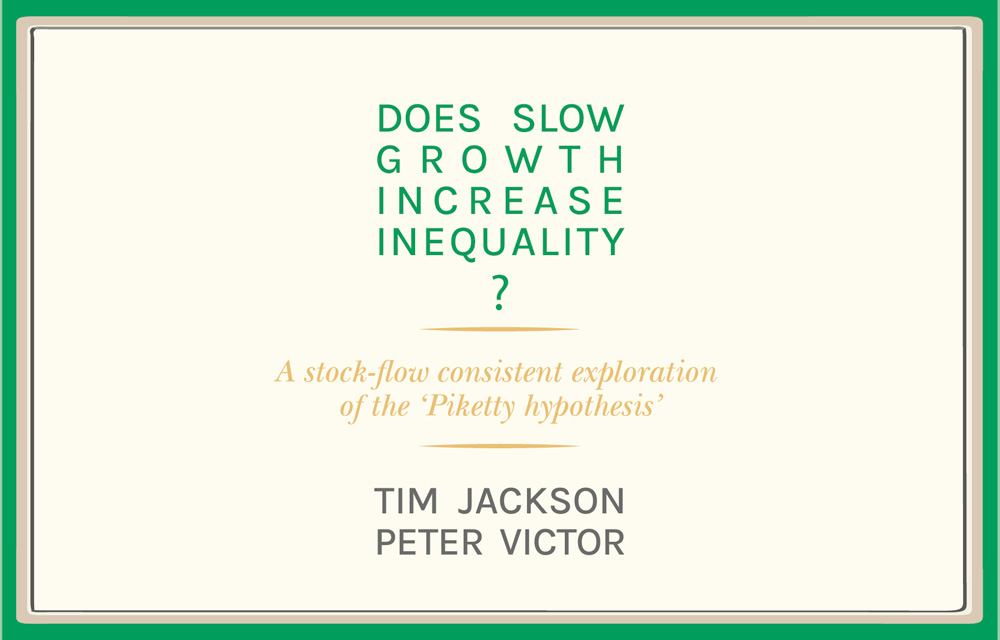PUBLICATIONS
As our work progresses, publications are arising from our research themes and cross-cutting projects. We produce working papers, journal articles, evidence submissions to government enquiries, essays, books and book chapters. Subscribe to our newsletter to receive a monthly digest in your inbox. If you want to hear more frequently from us, you can subscribe to email updates from the website directly.

In July 2016, the House of Commons Environmental Audit Committee has launched an inquiry into domestic implementation of the UN Sustainable Development Goals (SDGs) to which the Centre for the Understanding of Sustainable Prosperity responded.

This paper explores the ramifications of the combined crises now faced by the prevailing growth-based model of economics. In paying a particular attention to the nature of enterprise, the quality of work, the structure of investment and the role of money, the paper develops the conceptual basis for social innovation in each of these areas, and provides empirical examples of such innovations.

Understanding sustainable prosperity is an essential but complex task. It implies an ongoing multidisciplinary and transdisciplinary research agenda. This working paper sets out the dimensions of this task. In doing so it also establishes the foundations for the research of the ESRC-funded Centre for the Understanding of Sustainable Prosperity (CUSP).

Taken together, the suite of system dynamics models developed by Tim Jackson et al represent the first steps in constructing a new macro-economic synthesis capable of exploring the economic and financial dimensions of an economy confronting resource or environmental constraints.

We all want long-term financial performance and the positive sustainability and social outcomes associated with this. However, too often capital markets fail to deliver these. This roundtable will focus on the top of the investment chain: what action can asset owners take?

A recent consultation by HM Treasury has invited written feedback on the proposed governance, structure and operation of the new National Infrastructure Commission; CUSP submitted a reply.

The Environmental Audit Committee has invited written evidence on the role of HM Treasury in relation to sustainable development and environmental protection, CUSP submitted a response.

With their latest publication, Nathalie Rühs and CUSP Co-Investigator Aled Jones look at the role and rule of law in the making of society and the arguments for a paradigm shift from an Anthropocentric ontology to a more Earth-centered one.

Inequality has become essential to understanding contemporary society. The article by Kate Oakley and Dave O’Brien considers inequality and cultural value from two points of view: how cultural value is consumed and how it is produced.

The SIGMA model explores the hypothesis that slow growth rates lead to rising inequality. Contrary to the general hypothesis, the work finds that inequality does not necessarily increase as growth slows down. In fact, there are certain conditions under which inequality can be ameliorated significantly, or even entirely eliminated, as growth declines.

This paper addresses the question of whether a capitalist economy can ever sustain a ‘stationary’ (or non-growing) state, or whether, as often claimed, capitalism has an inherent ‘growth imperative’ arising from the charging of interest on debt. Contrary to claims in the literature, we find that neither credit creation nor the charging of interest on debt creates a ‘growth imperative’ in and of themselves.
